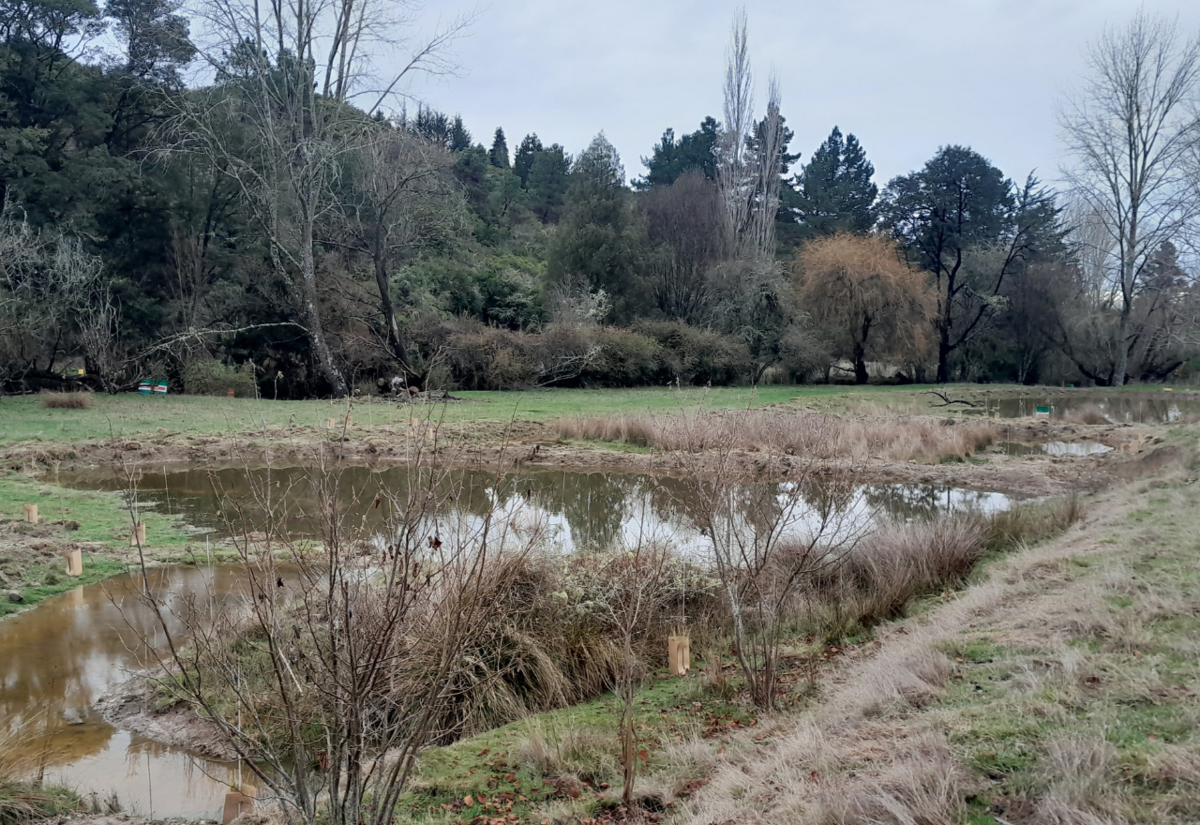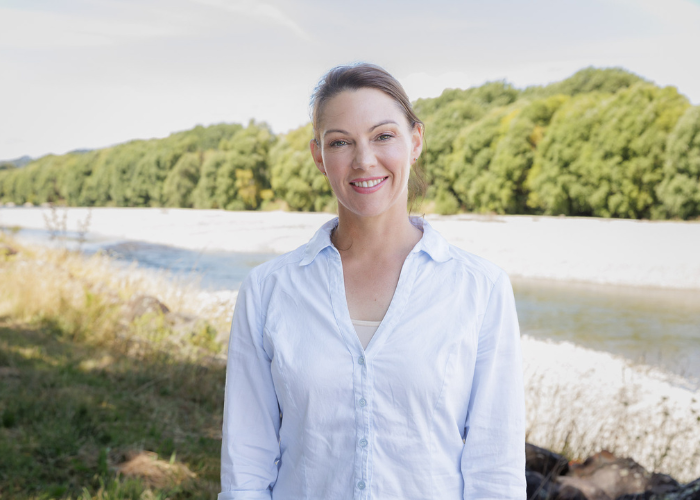Small-scale wetlands making a big difference, says Fish & Game
10 February 2025, 9:31 PM

Fish & Game New Zealand is highlighting how small-scale wetland projects are proving to be powerful tools in the fight to protect and restore New Zealand's precious wetland ecosystems.
Fish & Game Chief Executive Corina Jordan, who recently visited newly created wetlands in the Tasman District, says while the organisation has completed many large wetland projects nationwide, smaller projects are increasingly showing their value.
"When it comes to wetland restoration, bigger isn't necessarily better," says Jordan. "Particularly when land is expensive, creating numerous smaller wetlands can provide excellent habitat diversity for bird and aquatic life while delivering all the positive environmental benefits wetlands offer."

In Tasman, the small-scale wetlands at Sue and David Watts's Motueka Valley property, and Lawrence, Georgina & Yachal Upson's property in Blackbird Valley have been created using the permissive rules for wetlands that the Tasman District Council has, which enables the work to occur without resource consent, provided certain criteria can be met. This streamlined approach is making it easier for landowners to contribute to wetland restoration.
Yachal Upson says the wetland reconstruction started years ago.
“In this case it was Landcare Trust, Westpac Bank, Fish & Game, our local Catchment Group, and funders such as Trees that Count. But it's not about the lineup, what counts is catalysts such as Fish & Game NZ helping to turn windows of opportunity into projects of passion.
“In restoring this ecosystem we've not only built pools, we've built a community in a way that has added to a sense of belonging for everyone involved. We've given my parents the chance to share excitement with their young grandchildren, as they both discover something new.
“For me it goes even further - in our changing world, water is our future. Managing our water wealth is our ticket to a strong and safe economy, one we can pass to those same grandchildren. Build it I say! You'll learn something or smile trying.”
David Watts said they wanted some green on their property and to create a space for biodiversity.
“We’re only custodians of this ground; there’s the future aspect of it… Leave things better than you found them.”
They’ve been doing riparian planting for three years and have their first tui visiting and are seeing ducks and other wildlife. “It makes your soul sing.”
Jordan points out that less than 9 percent of New Zealand's original wetlands remain, making every restoration project crucial, regardless of size.
"Wetlands are nature's filtration system. They trap sediments and nutrients, improving downstream water quality in our streams and rivers. They're also natural flood protection, acting like giant sponges to slow down flood waters."
Fish & Game is seeing growing interest from farmers and landowners in wetland creation, and from catchment communities.
Landowners interested in creating or restoring wetlands can access support and in some cases potential funding through Fish & Game's comprehensive support package, which includes site evaluation, design assistance, and ongoing management strategies.
"We take a true partnership approach with landowners," Jordan explains. "Rather than just offering advice, we're there every step of the way - from initial planning through to long-term management. This hands-on support really makes the difference in successful wetland projects."
Fish & Game’s commitment to wetland restoration is backed by significant funding through the Game Bird Habitat Trust.
"While these particular wetlands did not use the funding it is available, and we are here to help.
“Since 1993, the Trust has provided $2.4 million in grants to nearly 300 projects, helping to create, enhance or reinstate some 2,000 hectares of habitat," says Jordan.
Approximately $22 million has been invested so far in restoring wetlands, mainly on private rural land, in partnership between hunters and landowners.


